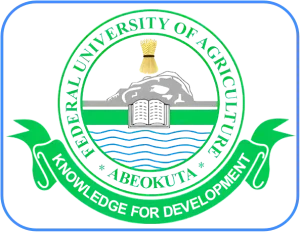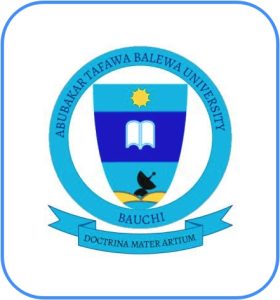As a fresh candidate in 2025, selecting the right university for your engineering career can make all the difference.
Whether you’re aiming for civil engineering, mechanical engineering, or any other engineering discipline, this guide highlights the best universities to study engineering in Nigeria.
When looking for the best Nigerian universities to study engineering you must consider COREN accreditation, research and innovation, program diversity, facilities, graduate marketability, and international reputation.
In this post, we’ll walk you through the best Nigerian universities to study engineering, highlighting each one, their marketability in today’s world, and why they can be the best place for you to start your engineering career.
Why Study Engineering in Nigeria?
Nigerian universities offer some of the best affordable programs to prepare you as future innovators and problem-solvers.
Any of these institutions will provide you with a degree and skills that are not only respected in Nigeria but also hold significant value in the international job market.
Their COREN-accredited (Council for the Regulation of Engineering in Nigeria) programs ensure that you (students) are getting an education aligned with global standards.

The Best Nigerian Universities to Study Engineering in 2025
According to Scimagoir Institution Rankings, the listed, are the top best Nigerian universities for engineering based on essential research, innovation records, COREN accreditation, program diversity, facilities, graduate marketability, and international reputation
You will find the global and national rankings attached accordingly.

Download Full PDF [List of Best Nigerian Universities for Engineering in 2025]
(Source: Scimagoir Institution Rankings)
Research & Innovation Leaders
1. Ladoke Akintola University of Technology (LAUTECH)
- Rank: 1st (1962)
- History: Established in 1990, LAUTECH has become one of Nigeria’s top engineering and technology institutions, known for research-driven innovation and practical training.
- Strength: Engineering innovation in Mechanical, Electrical, and Computer Engineering.
- Location: Ogbomoso, Oyo State

2. Covenant University
- Rank: 2nd (2739)
- History: Founded in 2002, Covenant University is recognized for its strong focus on technology and leadership development.
- Strength: Cutting-edge technology integration with engineering education.
- Location: Ota, Ogun State
Many parents, like Mr. Olumide, have shared that Covenant University’s reputation gives them peace of mind about their children’s futures.

3. University of Ilorin (UNILORIN)
- Rank: 3rd (3130)
- History: Established in 1975, UNILORIN is one of Nigeria’s most stable universities, offering top-quality engineering programs.
- Strength: Practical, industry-connected engineering education.
- Location: Ilorin, Kwara State

4. Ahmadu Bello University (ABU)
- Rank: 4th (3259)
- History: Founded in 1962, ABU has been a key player in shaping Nigeria’s engineering landscape with its wide-ranging engineering programs.
- Strength: COREN-accredited programs in Mechanical, Civil, and Agricultural Engineering.
- Location: Zaria, Kaduna State

5. Landmark University
- Rank: 5th (3277)
- History: Established in 2011, Landmark University focuses on agrarian reform and development, blending agriculture with engineering.
- Strength: Agricultural engineering and infrastructure development expertise.
- Location: Omu-Aran, Kwara State

Engineering Universities with Industry Connections
6. University of Nigeria, Nsukka (UNN)
- Rank: 6th (3358)
- History: Founded in 1960, UNN is Nigeria’s first indigenous university, offering a variety of top-tier engineering disciplines.
- Strength: Leading programs in Electrical, Mechanical, and Civil Engineering.
- Location: Nsukka, Enugu State

7. University of Lagos (UNILAG)
- Rank: 7th (3412)
- History: Established in 1962, UNILAG sits at the heart of Nigeria’s commercial capital, offering students direct industry exposure.
- Strength: Key connections with telecommunications and infrastructure industries.
- Location: Lagos, Lagos State
Engineering students often comment on the hands-on opportunities provided by FUTA and UNILAG, praising the access to tech industries and practical learning experiences.”

8. Federal University of Technology, Owerri (FUTO)
- Rank: 8th (3427)
- History: Established in 1980, FUTO is a center for technological innovation in engineering.
- Strength: Focus on industrial automation and technology-driven solutions.
- Location: Owerri, Imo State

9. Nnamdi Azikiwe University (UNIZIK)
- Rank: 9th (3452)
- History: Founded in 1991, UNIZIK blends modern teaching techniques with hands-on engineering training.
- Strength: Strong hands-on learning approach across several engineering disciplines.
- Location: Awka, Anambra State

Traditional Excellence in Engineering Education
10. Obafemi Awolowo University (OAU)
- Rank: 10th (3515)
- History: Established in 1962, OAU is a prestigious Nigerian university with a strong legacy in academic rigor.
- Strength: Top engineering programs that blend theory with practical applications.
- Location: Ile-Ife, Osun State

11. Bayero University, Kano (BUK)
- Rank: 11th (3519)
- History: Founded in 1977, BUK is a leading institution in Northern Nigeria with robust engineering programs.
- Strength: Known for strengths in Agricultural and Civil Engineering.
- Location: Kano, Kano State

12. Federal University of Agriculture, Abeokuta (FUNAAB)
- Rank: 12th (3531)
- History: Established in 1988, FUNAAB focuses on integrating agriculture with engineering for sustainable solutions.
- Strength: Specializes in Agricultural Engineering with a practical focus.
- Location: Abeokuta, Ogun State

13. Federal University of Technology, Akure (FUTA)
- Rank: 13th (3566)
- History: Founded in 1981, FUTA has been a leader in technology and engineering innovation in Nigeria.
- Strength: Known for innovation in Mechanical, Electrical, and Telecommunications Engineering.
- Location: Akure, Ondo State

Emerging Institutions for Engineering & Technology
14. Afe Babalola University
- Rank: 14th (3694)
- History: Founded in 2009, Afe Babalola University is a fast-rising private institution with a focus on technology and leadership.
- Strength: Modern programs with a focus on engineering innovation.
- Location: Ado-Ekiti, Ekiti State

15. University of Ibadan (UI)
- Rank: 15th (3725)
- History: Established in 1948, UI is Nigeria’s oldest university with a strong academic heritage in engineering.
- Strength: Long-standing reputation for COREN-accredited engineering programs.
- Location: Ibadan, Oyo State

16. Federal University of Technology, Minna
- Rank: 16th (3849)
- History: Established in 1983, FUT Minna has made its mark as a leader in technology-driven engineering education.
- Strength: Specializes in automation and industrial engineering.
- Location: Minna, Niger State

17. Michael Okpara University of Agriculture, Umudike
- Rank: 17th (4124)
- History: Founded in 1992, this university is focused on agricultural engineering and environmental sustainability.
- Strength: Known for its programs in Agricultural Engineering with a focus on sustainable practices.
- Location: Umudike, Abia State

18. Abubakar Tafawa Balewa University (ATBU)
- Rank: 18th
- History: Established in 1980, ATBU is one of Northern Nigeria’s leading engineering and technology education universities.
- Strength: Known for hands-on Electrical, Software, Mechanical, Civil, Petroleum, and Mechatronics Engineering programs.
- Location: Bauchi, Bauchi State

Special Benefits of Choosing the Best Nigerian Universities to Study Engineering
1. Scholarships for Engineering Students
The top engineering universities in Nigeria offer engineering scholarships and financial aid to students based on academic merit (merit-based scholarships), need (need-based), or exceptional skills.
Universities like Covenant University, the University of Ibadan (UI), and Ahmadu Bello University (ABU) have scholarship programs that assist both local and international obtaining an engineering degree.
The scholarships range from full-tuition coverage to partial grants, with some being funded by government or private organizations that recognize the importance of engineering in driving Nigeria’s development.
Prospective engineering students should thoroughly research the financial aid opportunities available at each institution and apply early to secure support for their studies.
2. Graduate Employability and Global Opportunities
One key advantage of attending any of these top Nigerian engineering universities is their graduates’ high employability.
These institutions have established strong partnerships with industries like Chevron, and multinational companies like Total Energy, giving graduates access to internships, industrial placements, and job opportunities both within and outside Nigeria.
Universities like UNILAG, FUTO, and FUTA have extensive connections with global tech firms and engineering companies, leading to an increased chance of international job placements after graduation.
Additionally, the COREN accreditation of the engineering programs ensures that Nigerian engineering graduates are recognized and competitive in the global market, especially in regions like Europe, North America, and the Middle East, where skilled engineers are in high demand.
Conclusion
Your engineering career depends on your choice of university, and these best Nigerian universities provide some of Africa’s top choices.
These universities offer the information, abilities, and contacts to propel your engineering career to new heights, regardless of whether you are drawn to the bustling life of Lagos, the tranquil surroundings of Ile-Ife, or the expanding industries of Bauchi.
Whether you intend to work in Nigeria or enter the global market, these schools offer a competitive advantage thanks to their COREN-accredited programs and solid connections to government and industry initiatives.
FAQs
Which engineering is best for the future in Nigeria?
Electrical, Software, Civil, and Automobile Engineering are the best options, not only in Nigeria but also anywhere else in the world you may later find yourself.
Which university is the best for engineering in Nigeria?
Ladoke Akintola University of Technology (LAUTECH) is the best University for engineering in Nigeria according to global ranking of institutions (Scimagior)
Which engineering course has more job opportunities in Nigeria?
Computer and Civil engineering are currently the best engineering courses to study in Nigeria.
What factors should I consider when choosing an engineering university in Nigeria?
COREN accreditation, the diversity of engineering programs, available facilities, industry connections, and the university’s reputation both domestically and internationally.
Additionally, you may want to consider location, internship opportunities, and graduate marketability.
Which Nigerian universities offer COREN-accredited engineering programs?
Many top Nigerian universities offer COREN-accredited programs, including the University of Ibadan (UI), the University of Lagos (UNILAG), the Federal University of Technology Akure (FUTA), Obafemi Awolowo University (OAU), Ahmadu Bello University (ABU), and others mentioned in the post.
What are the general admission requirements for engineering programs in Nigerian universities?
Typically, you’ll need a minimum of five SSCE credits, including Mathematics, Physics, Chemistry, English, and a relevant science subject.
Candidates must also meet the university’s cut-off score in UTME (JAMB) and pass post-UTME screening.
How long does it take to complete an engineering degree in Nigeria?
The duration of study for engineering programs in Nigerian universities is generally 5 years for UTME candidates and 4 years for Direct Entry candidates who already possess an ND, HND, or A-level qualifications.
Which engineering fields are most in demand in Nigeria?
In Nigeria, fields such as Civil, Mechanical, Electrical, Petroleum, and Agricultural Engineering are in high demand.
However, emerging fields like Mechatronics, Computer Engineering, and Environmental Engineering are also gaining popularity due to the nation’s growing industrial and technological sectors.
Do Nigerian engineering universities offer scholarships?
Yes, many universities provide scholarships and financial aid based on academic performance or financial need.
Covenant University, for example, offers scholarships, while other institutions may provide opportunities through government and private-sector partnerships.
Are Nigerian engineering graduates employable both locally and internationally?
Yes, engineering graduates from top Nigerian universities are highly employable both within Nigeria and globally.
Graduates from institutions like UNILAG, UI, FUTA, and OAU are sought after by industries due to their strong academic training and practical experience.
Which university has the best industrial training opportunities for engineering students?
UNILAG and FUTA stand out for their strong industry connections, particularly in tech, infrastructure, and telecommunications.
The strategic locations of some universities, such as UNILAG in Lagos and UI’s proximity to businesses in Oyo State, offer students unique access to internships and industrial training.
What is COREN accreditation, and why is it important?
COREN (Council for the Regulation of Engineering in Nigeria) accreditation ensures that a university’s engineering program meets national standards in terms of curriculum, faculty, and facilities.
It is essential to ensure that engineering graduates are qualified and recognized by employers in Nigeria and abroad.
What are the employment prospects for engineering graduates from Nigerian universities?
Employment prospects are generally strong, especially for graduates of COREN-accredited institutions.
Graduates from universities like UNILAG, UI, and FUTA often find opportunities in industries such as oil and gas, telecommunications, construction, manufacturing, and tech, both in Nigeria and internationally.
